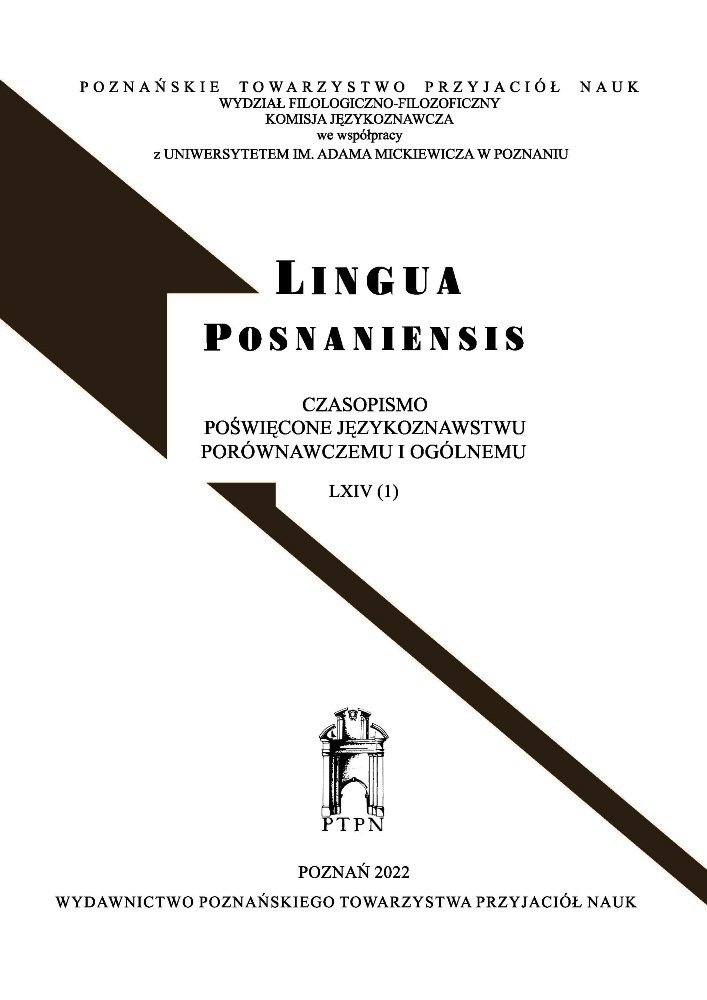Abstract
Due to the COVID-19 pandemic, teachers and educators have been forced to introduce digital solutions within a very short time, which influenced the educational perspective significantly, and required adapting to the new conditions, not only in what concerns teaching methods but also in terms of teaching content. Contrary to the commonly held opinion that teaching at tertiary level has not changed considerably, since it concerns adults who are already autonomous, the new teaching challenges have had an impact on tertiary education as well. Moreover, university teachers needed to face this new reality without prior preparation. The aim of this paper is to present the current pandemic-driven situation from the perspective of ESP teachers from various European countries by revealing not only some of the challenges posed by the pandemic, but also certain good practices which may become a guide for other ESP teachers. The methodology applied to inquiring this research question was a qualitative-quantitative online survey distributed among ESP teachers in European countries. The results show that online teaching during the pandemic was challenging for most respondents, at the same time offering them the opportunity to develop professionally by improving their technical skills and learning how to use online platforms, apps and tools.
References
Allo, M.D.G. 2020. Is the online learning good in the midst of Covid-19 Pandemic? The case of EFL learners. Sinestesia 10. 1-10.
Asunka, S. 2008. Online learning in higher education in Sub-Saharan Africa: Ghanaian University students’ experiences and perceptions. The International Review of Research in Open and Distance Learning 9(3). (http://www.irrodl.org/index.php/irrodl/article/view/586/1130) (Accessed 2021-04-07.) DOI: https://doi.org/10.19173/irrodl.v9i3.586
Ataiants G.B. & Podgornova N.A. 2021. The future of distance education: Challenges and opportunities. Development of education 4(2). 45-49. DOI: https://doi.org/10.31483/r-98649
Chang, V. & Gütl, C. & Ebner, M. 2018. Trends and opportunities in online learning, MOOCs, and cloud-based tools. In Voogt, J. & G. Knezek & R. Christensen & Lai, K.W. (eds.), Second handbook of information technology in primary and secondary education, 1-19. miejsce: Springer. DOI: https://doi.org/10.1007/978-3-319-71054-9_64
Coman, C. & Țîru L.G. & Meseșan-Schmitz, L. & Stanciu, C. & Bularca, M.C. 2020. Online teaching and learning in higher education during the coronavirus pandemic: Students’ perspective. Sustainability 12(24). 10367. DOI: https://doi.org/10.3390/su122410367
Darling-Hammond, L. & Flook, L. & Cook-Harvey, C. & Barron, B. & Osher, D. 2020. Implications for educational practice of the science of learning and development. Applied Developmental Science 24(2). 97-140. DOI: https://doi.org/10.1080/10888691.2018.1537791
Elumalai, K.V. & Sankar, J.P. & Kalaichelvi, R. & John, J.A. & Menon, N. & Alqahtani, M.S.N. & Abumelha. M.A. 2020. Factors affecting the quality of e-learning during the COVID-19 pandemic from the perspective of higher education students. Journal of Information Technology Education: Research 19. 731-753. DOI: https://doi.org/10.28945/4628
Hodges, C. & Moore, S. & Lockee, B. & Trust, T. & Bond, A. 2020. The difference between emergency remote teaching and online learning. EDUCAUSE (https://er.educause.edu/articles/2020/3/the-difference-betweenemergency-remote-teaching-and-online-learning.) (Accessed 2021-06-17.)
Howard, S. & Tondeur, J. & Siddiq, F. & Scherer, R. 2021. Ready, set, go! Profiling teachers’ readiness for online teaching in secondary education. Technology, Pedagogy and Education 30(1). 141-158. DOI: https://doi.org/10.1080/1475939X.2020.1839543
Madani, Y. & Erritali, M. & Bengourram, J. & Sailhan, F. 2019. Social collaborative filtering approach for recommending courses in an e-learning platform: International Workshop on Web Search and Data Mining, Leuven, Belgium. Procedia Computer Science 151. 1164-1169. (https://hal.archives-ouvertes.fr/hal-0246-8569/document) (Accessed 2021-06-18) DOI: https://doi.org/10.1016/j.procs.2019.04.166
Makokha, G.L. & Mutisya, D.N. 2016. Status of e-learning in public universities in Kenya. International Review of Research in Open and Distance Learning 17(3). 341-359. DOI: https://doi.org/10.19173/irrodl.v17i3.2235
Malik, H.A.M. & Abid, F. & Kalaicelvi, R. & Bhatti, Z. 2018. Challenges of computer science and IT in teaching-learning in Saudi Arabia. Sukkur IBA Journal of Computing and Mathematical Sciences 2(1). 29-35. DOI: https://doi.org/10.30537/sjcms.v2i1.71
Moore, J. 2014. Effects of online interaction and instructor presence on students’ satisfaction and success with online undergraduate public relations courses. Journalism & Mass Communication Educator 69(3). 271-288. DOI: https://doi.org/10.1177/1077695814536398
Muthuprasad, T. & Aiswarya, S. & Aditya, K.S. & Girish K.J. 2021. Students’ perception and preference for online education in India during COVID-19 pandemic. Social Sciences & Humanities Open 3(1). (https://www.sciencedirect.com/science/article/pii/S2590291120300905) (Accessed 2021-06-15.) DOI: https://doi.org/10.1016/j.ssaho.2020.100101
Protopsaltis, S. & Baum, S. 2019. Does online education live up to its promise? A look at the evidence and implications for federal policy [PDF file]. (http://mason.gmu.edu/~sprotops/OnlineEd.pdf) (Accessed 2021-04-07.)
Queiros, D.R. & de Villiers, M.R. 2016. Online learning in a South African higher education institution: Determining the right connections for the student. International Review of Research in Open and Distance Learning 17(5). 165-185. DOI: https://doi.org/10.19173/irrodl.v17i5.2552
Randstad. 2020. Monitor rynku pracy. (http://info.randstad.pl/monitor-rynku-pracy-42-i) (Accessed 2021-06-15.)
Taghizadeh M. & Ejtehadi A. 2021. Investigating pre-service EFL teachers’ and teacher educators’ experience and attitudes towards online interaction tools. Computer Assisted Language Learning. DOI: https://doi.org/10.1080/09588221.2021.2011322
UNESCO. 2020. COVID-19 educational disruption and response. (https://en.unesco.org/news/covid-19-educational-disruption-and-response) (Accessed 2021-04-22.)
Wang, M. & Ran, W. & Liao, J. et al. 2010. A performance-oriented approach to e-learning in the workplace. Journal of Educational Technology & Society 13(4). 167-179.
License
Copyright (c) 2022 Joanna Kic-Drgas, Oana Mureșan

This work is licensed under a Creative Commons Attribution-NonCommercial-NoDerivatives 4.0 International License.

